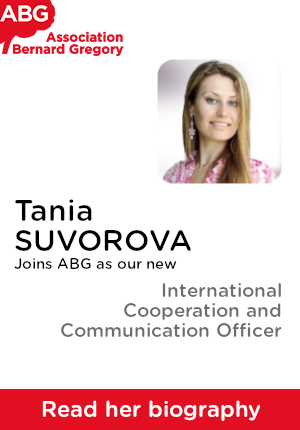Diatom-inspired structuration of inorganic matter
| ABG-134489 | Thesis topic | |
| 2025-11-21 | Public/private mixed funding |

- Materials science
- Chemistry
Topic description
Diatom-inspired structuration of inorganic matter
This interdisciplinary Ph.D. project aims to develop bioinspired strategies for the hierarchical structuration of inorganic materials, taking inspiration from the extraordinary nanostructures formed by diatoms. The successful candidate will use model soft matter systems—such as phospholipid bilayers and giant unilamellar vesicles (GUVs)—to investigate how lipid membrane organization and biomineralization peptides control the formation of inorganic materials like silica, titania, and gold. By combining tools from materials chemistry, soft matter physics, and bioinspired nanoscience, this work seeks to pioneer new routes for bottom-up control of nanostructure and morphology in inorganic materials.
Diatoms are single-celled photosynthetic organisms that feature an exterior wall of structured silica (frustule). The complexity, variety, and reproducibility seen in the meso- and nanostructuration of various diatom species' frustules is much better than any synthetic approach currently used in materials science. Frustules are created in organelles called silica deposition vesicles (SDVs). Recent results suggest that the membrane of the SDV plays an important role in mediating the growth and structuration of diatom frustules.[1]
In this Ph.D. project, the student will (1) investigate interactions between self-assembled phospholipid systems and inorganic precursors. (2) explore templating of silica condensation by phase-segregated lipid bilayers and GUVs. (3) integrate biomineralization peptides into lipid systems to drive spatially controlled mineralization, and (4) extend the approach to other inorganic materials.
The student will gain experience in: Langmuir-Blodgett film deposition and vesicle preparation, fluorescence and total internal reflection fluorescence (TIRF) microscopy, electron microscopy (SEM/TEM), NMR spectroscopy, and optical spectroscopy, sol-gel synthesis and bioinspired mineralization methods, data analysis, scientific communication, and collaboration within an international research environment
Starting date
Funding category
Funding further details
Presentation of host institution and host laboratory
Research will be carried out at the Laboratoire de Chimie (LCH, UMR5182) of École Normale Supérieure de Lyon (ens-lyon.fr/CHIMIE), under the supervision of Lucien Roach, Carlos Marques, and Bélèn Albela. The LCH has an internationally recognized materials science research axis, with excellent characterization and synthesis facilities. The LCH has recently acquired a Langmuir-Blodgett trough and total internal reflectance fluorescence (TIRF) microscope to support this project. The recruited intern will interact with the team of researchers, engineers, and students involved in the study of soft matter systems and materials science within the LCH.
Website :
PhD title
Country where you obtained your PhD
Institution awarding doctoral degree
Candidate's profile
The ideal candidate will have a strong background (Masters degree or equivalent) in chemistry, physics, or materials science and a keen interest in studying bio-inspired systems and soft matter approaches to materials science. The candidate should have curiosity, creativity, and willingness to work at the interface of chemistry, biology, and physics. Experience in materials science, self-assembly, or membrane biophysics is considered a strong bonus. Proficiency in English is preferred.
Vous avez déjà un compte ?
Nouvel utilisateur ?
Get ABG’s monthly newsletters including news, job offers, grants & fellowships and a selection of relevant events…
Discover our members
 SUEZ
SUEZ  ASNR - Autorité de sûreté nucléaire et de radioprotection - Siège
ASNR - Autorité de sûreté nucléaire et de radioprotection - Siège  MabDesign
MabDesign  Nokia Bell Labs France
Nokia Bell Labs France  Aérocentre, Pôle d'excellence régional
Aérocentre, Pôle d'excellence régional  CESI
CESI  Laboratoire National de Métrologie et d'Essais - LNE
Laboratoire National de Métrologie et d'Essais - LNE  MabDesign
MabDesign  ANRT
ANRT  Ifremer
Ifremer  ONERA - The French Aerospace Lab
ONERA - The French Aerospace Lab  Généthon
Généthon  ADEME
ADEME  Groupe AFNOR - Association française de normalisation
Groupe AFNOR - Association française de normalisation  Institut Sup'biotech de Paris
Institut Sup'biotech de Paris  TotalEnergies
TotalEnergies  Tecknowmetrix
Tecknowmetrix  PhDOOC
PhDOOC  CASDEN
CASDEN

